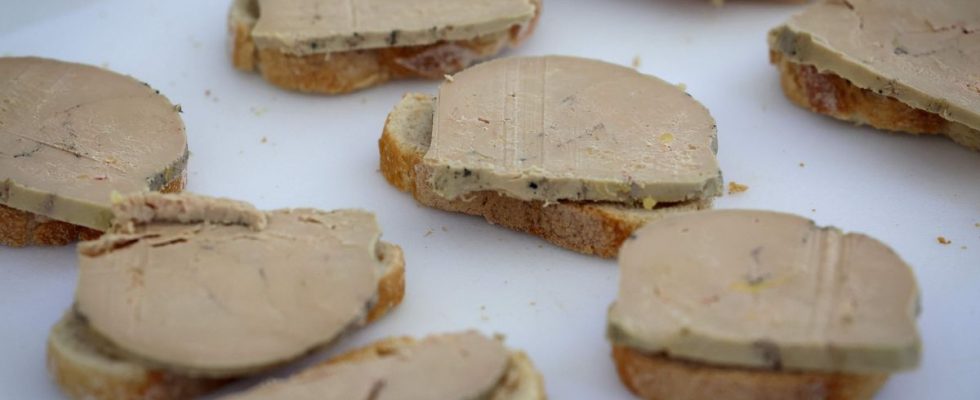Will the Swiss still be able to buy foie gras in their country? The people will have the opportunity to vote on whether or not to ban imports of this product but also of fur, because an animal rights association submitted enough signatures to this effect on Thursday.
The Swiss Animal Alliance, at the origin of this campaign, stacked boxes symbolizing the certified signatures in front of the Federal Chancellery in Bern: 106,448 collected against the importation of foie gras, 116,140 against that of furs. That is, beyond the threshold of 100,000 necessary to trigger a vote at the national level.
The association denounces a “hypocritical” situation
Force-feeding – a technique which consists of over-feeding poultry to fatten their livers – is prohibited in Switzerland, but not the importation of products resulting from this practice. The popular initiative “Yes to the ban on the importation of foie gras” now wants to constitutionally prohibit the importation of this product.
With 200 tonnes of foie gras imported each year, “Switzerland unfortunately positions itself as one of the main importers of this product (…) Each year, 400,000 ducks and 12,000 geese are killed in order to respond specifically to the demand of our country” , denounces the organization. It is therefore “hypocritical to prohibit Swiss breeders from producing foie gras under penalty of sanctions, while authorizing the importation of this product”.
Force-feeding widely banned in Europe
Almost all European countries prohibit the force-feeding of geese and ducks, with the notable exceptions of France, Hungary and Bulgaria. In mid-September, the Swiss Parliament refused to ban the importation of foie gras, as did the federal government. For elected officials, a ban would risk leading to shopping tourism towards France to the detriment of Swiss businesses.
The second proposal is titled “Yes to banning the importation of fur products produced under conditions of animal cruelty.” The Swiss Animal Alliance denounces “these methods of breeding and killing (which) clearly contravene our legislation on the protection of animals and would be considered cruelty, punishable in Switzerland by criminal sanctions”. According to her, 350 tonnes of fur are imported each year, which corresponds to the slaughter of around 1.5 million animals.

